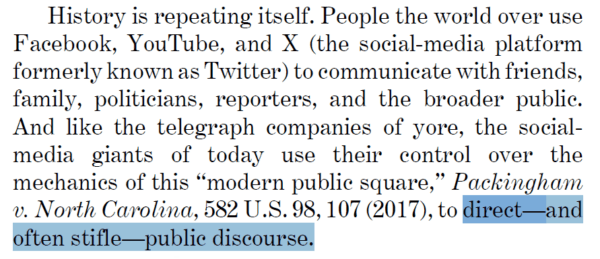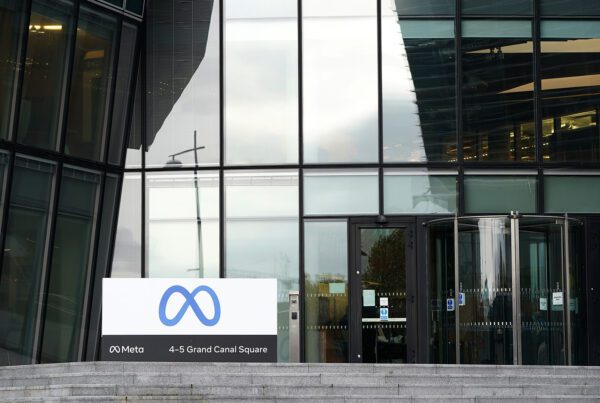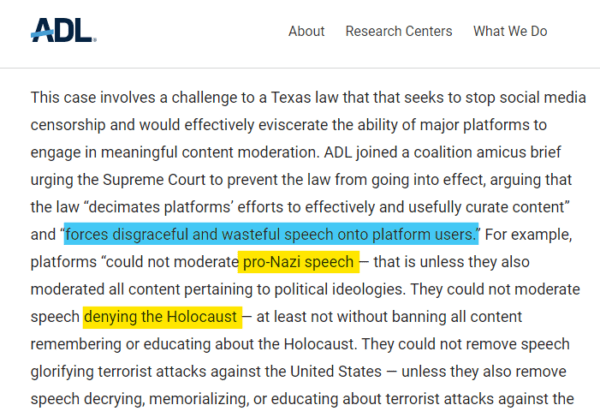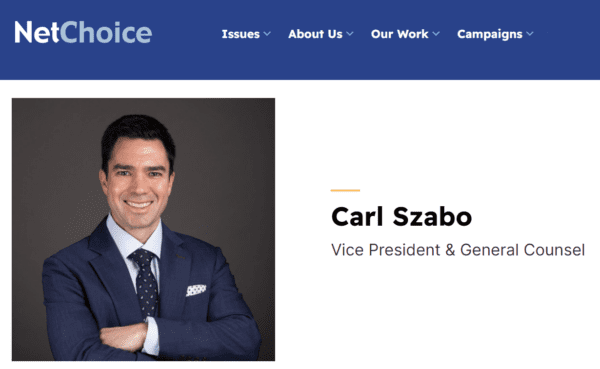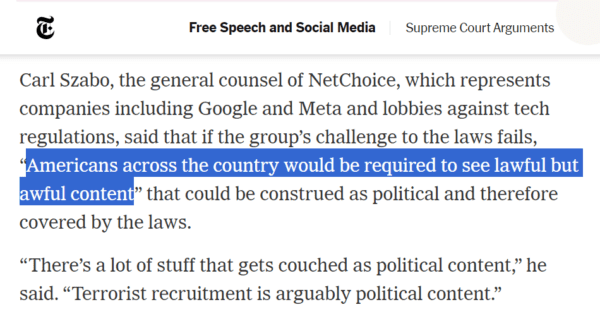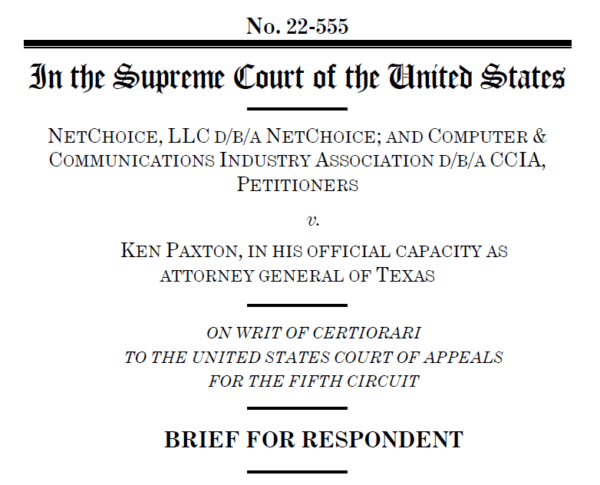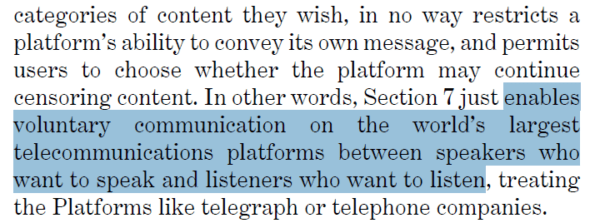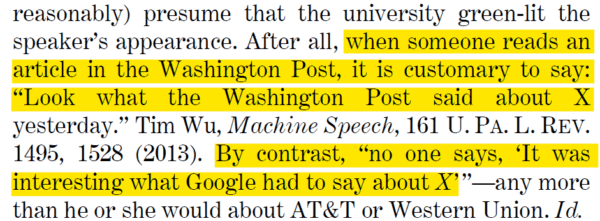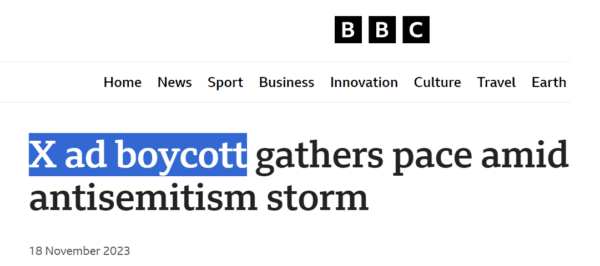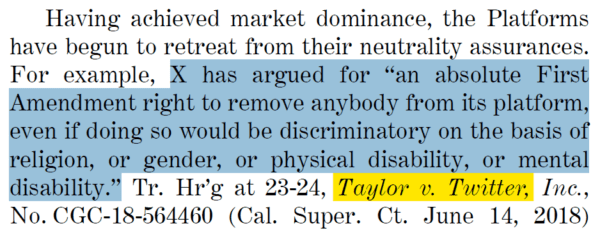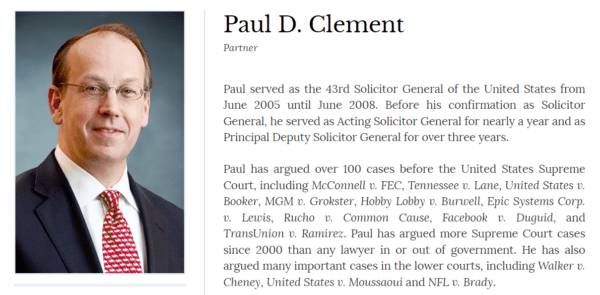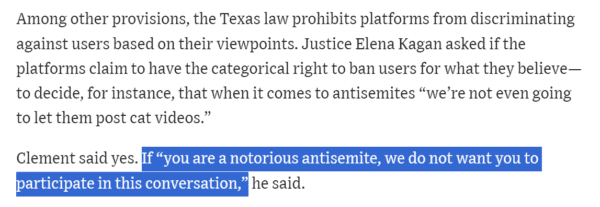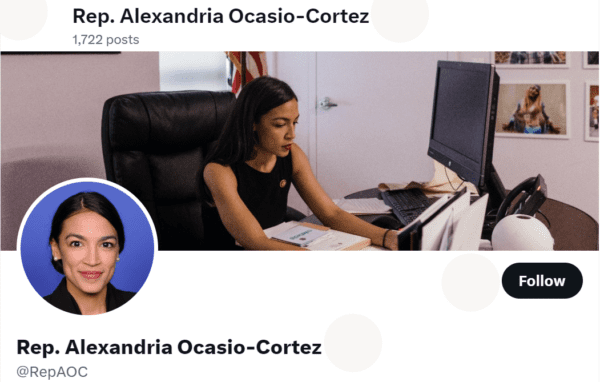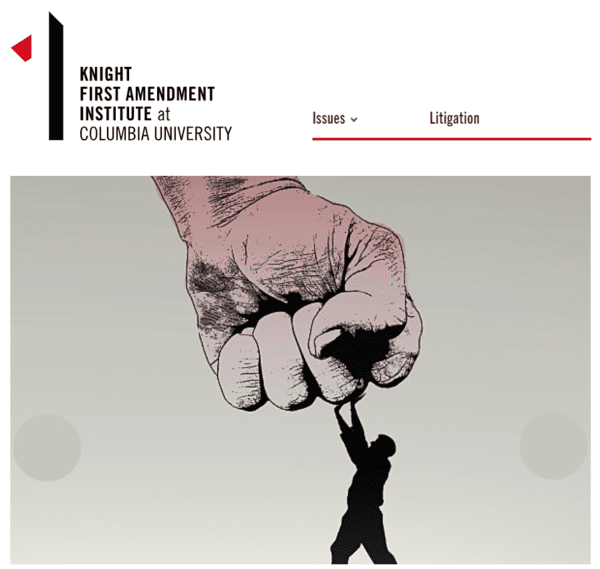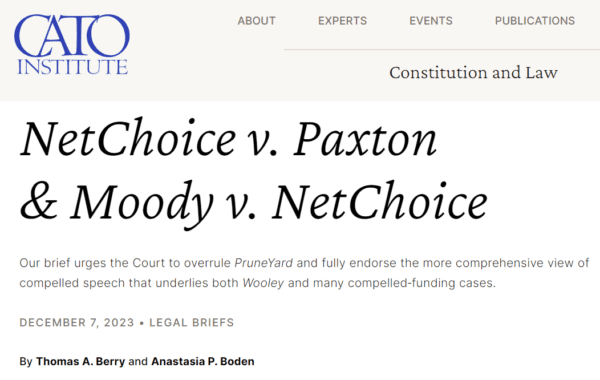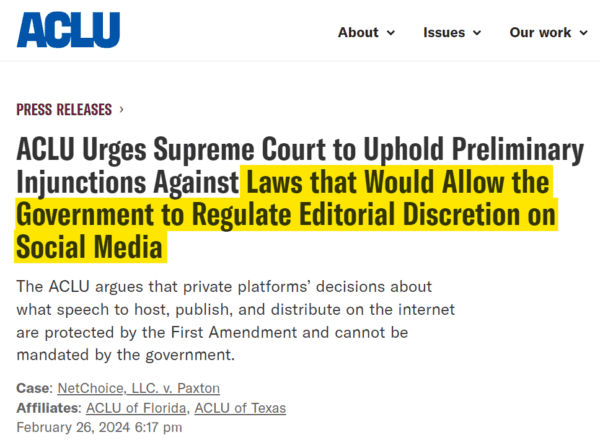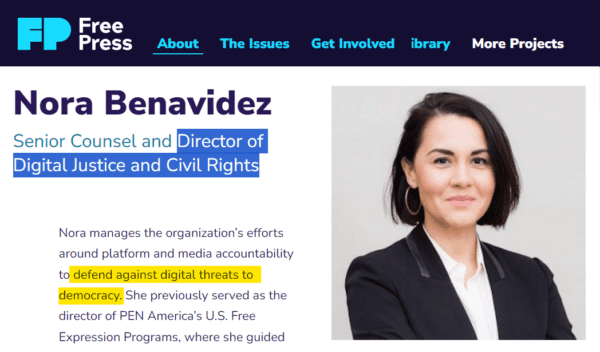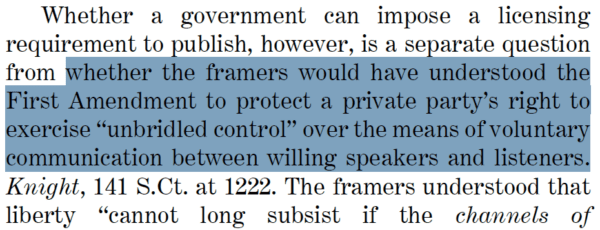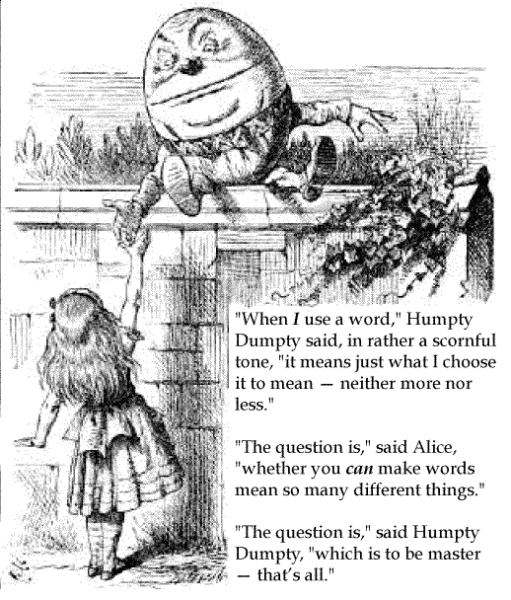Supreme Court to Decide ‘Who Is to Be Master’
- Post AuthorBy Jared Taylor
- Post DateFri Mar 01 2024
This video is available on Rumble, BitChute, and Odysee.
On Monday, the US Supreme Court heard arguments in a case that could determine whether there is free speech on the internet or unlimited censorship. Is YouTube, for example, like a newspaper, which has complete control over what it decides to print, or is it like the US Mail or the phone company, and must transmit all legal messages?
It was a 2021 Texas law known as HB20 that forced the Court to take up the question. The legislature recognizes that social media “direct—and often stifle—public discourse.”
HB20 therefore bars the big companies – those with at least 50 million monthly users in the United States – from any form of viewpoint discrimination.
Credit Image: © Brian Lawless/PA Wire via ZUMA Press
They could ban direct incitements to violence, criminal conspiracies, child pornography, and certain kinds of legal speech such as adult porn and depictions of violence. But there could be no censorship of any opinion or political position.
Needless to say, the people who like censorship are saying ridiculous things about HB20. The ADL – always reliable – says that “pro-Nazi speech” and “Holocaust denial” must be rigorously banned, so any law that limits censorship “forces disgraceful and wasteful speech onto platform users.”
People who should know better are saying the same thing. Carl Szabo is general counsel for the tech industry group trying to kill HB20.
He told the New York Times that if the law is enforced, “Americans across the country would be required to see lawful but awful content.”
This is pathetically wrong. You don’t see Hitler-Lover Harry’s news feed unless you signed up for it. Anyone who has ever used Facebook or X knows that. As the Texas brief to the Supreme Court points out, HB20 “enables voluntary communication on the world’s largest telecommunications platforms between speakers who want to speak and listeners who want to listen.”
If you stumble onto Hitler-Lover Harry, you can follow him – or not. His stuff isn’t going up on billboards in Times Square. The ADL and Carl Szabo don’t want him – or anyone else they don’t like – talking to anyone, especially not to people who want to listen.
A more serious objection – but still wrong – is that if HB20 makes social media companies carry ideas they don’t like, that is “compelled speech.” They would be forced to say things they don’t want to say, and that violates their First Amendment rights.
But no one thinks that when Hitler-Lover Harry says something on Facebook, that Facebook itself said it. As the Texas brief puts it, “when someone reads an article in the Washington Post, it is customary to say: “Look what the Washington Post said about X . . . By contrast, “no one says, ‘It was interesting what Google had to say about X.”
HB20 doesn’t force a media company to say anything, and it doesn’t prevent it from saying anything, either. If Facebook wants to, it can add a warning to every one of Harry’s posts: “We despise this guy. He’s got an account only because we aren’t allowed to discriminate.”
HB20 therefore doesn’t regulate Facebook’s speech. It regulates its behavior – it’s ability to censor – and is therefore not a First Amendment issue at all.
The Communications Decency Act explicitly recognizes that platforms are not responsible for users’ posts and are not endorsing them. That is why its famous Section 230 says you can’t sue platforms for the libelous or criminal things users post. Big tech gets this special exemption that newspapers or magazines don’t for one reason only: Everyone knows that they are conduits for the speech of others, not selective publishers like newspapers.
The industry argued that when advertisers boycott companies that let Harry post, it’s because they think companies do endorse him.
That’s nonsense. It’s because advertisers know the industry has the power to censor people the advertisers don’t like, and they want those people censored.
Today, internet companies can boot anyone, not just for what he says on the platform, but for any reason at all. I was amused to see that the Texas brief cites a claim Twitter made after your servant sued it, back in 2018: “X [as it’s now called] has argued for “an absolute First Amendment right to remove anybody from its platform, even if doing so would be discriminatory on the basis of religion, or gender, or physical disability, or mental disability.” Taylor v. Twitter.”
Twitter was saying then and the tech companies are saying now that if they don’t like you, it doesn’t matter what you post. As the Wall Street Journal reported, in oral argument, Justice Elena Kagan asked if an antisemite could be kicked out of a discussion about cats. Paul Clement, the industry lawyer, didn’t hesitate.
“If you are a notorious antisemite, we do not want you to participate in this conversation.”
This happens all the time. I was booted from Facebook just for keeping up with family and friends, kicked off Instagram for exchanging photos with my children, and banned from Payal for buying perfectly ordinary things online.
The industry brags that Americans and their elected representatives use social media to talk to each other as a vital part of the democratic process.
The industry therefore claims the right to lock its enemies out of “our democracy.”
It’s amusing to see allegedly free-speech organizations lining up – along with the Biden administration, of course – to fight HB20. The Knight First Amendment Institute says that “ ‘must-carry’ [or must publish] provisions [are] unconstitutional because they override platforms’ editorial judgment,” as if YouTube – which gets about 500 hours of video uploaded to it *every minute* – exercises editorial judgment, just like the Chicago Tribune.
The libertarian CATO institute wants social media to censor as much as it likes.
The ACLU, which used to support free speech, is now against what it calls “laws that would allow the government to regulate editorial discretion on social media.”
Outright lefties are terrified of free speech. Nora Benavidez is Director of Digital Justice and Civil Rights at something ironically called Free Press. Her job is to “defend against digital threats to democracy.”
She says it’s a “pivotal election year,” so “platforms should strengthen their content-moderation policies.”
What are the chances this lady has ever been within a mile of someone who voted for Donald Trump?
The very people who love to use government power to smash their opponents can now pretend that they are at the barricades fighting state tyranny. How dare we give the government the power to tell YouTube to let Jared Taylor have his channel back! Outrageous!
Of course, we know which side they would be on if I still had my channel and YouTube were kicking off climate activists and abortion boosters. It’s all about getting their way, free speech be damned.
The Texas brief got it exactly right when it asked “whether the framers would have understood the First Amendment to protect a private party’s right to exercise ‘unbridled control’ over the means of voluntary communication between willing speakers and listeners.”
That is what lefties want: “unbridled control” over what you read, what you see, what you hear – and what you think. And they claim they’re defending the First Amendment. It would be all so delicious if they weren’t wrecking the country.
A talking egg had it all figured out in 1865. “When I use a word, Humpty Dumpty said in rather a scornful tone, “it means just what I choose it to mean — neither more nor less.”
“The question is, said Alice, “whether you can make words mean so many different things.”
“The question is,” said Humpty Dumpty, “which is to be master — that’s all.”
We know who wants to be not only master but to shut up anyone who disagrees.
The court is expected to rule on this case this summer.
- Post TagsAnti-Discrimination Law, Censorship
